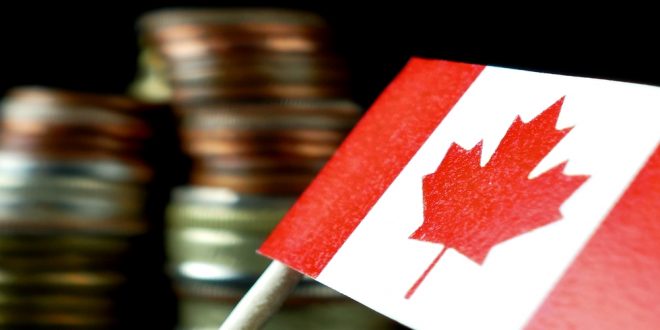The Bank of Canada is expected to announce its first oversized interest-rate hike in more than two decades after hawkish comments from the country’s top monetary policymakers and central bankers and growing signals that the economy is overheating.
On Wednesday, the Bank of Canada will announce its decision on monetary policy. A rate hike of 50 bp is widely expected. The most likely scenario is a 50 bp hike and beginning quantitative tightening as of May. The central bank is revising to the upside GDP and inflation forecasts. They look for a hawkish policy decision.
Traders expect the BoC to lift rates by 50bps, announce QT beginning in May, and signal that more hikes will be needed. Traders also look for material upward revisions to 2022 GDP and inflation forecasts.
Governor Tiff Macklem and his team have so far taken a gradual approach to tightening monetary policy, keeping borrowing costs near record lows and changing policy levers in a deliberate manner. But with inflationary pressures broadening, and Russia’s invasion of Ukraine sending energy and food prices soaring, bank officials appear ready to push Canadian interest rates up aggressively.
Expectations of a 50 bp interest rate hike from the Bank of Canada will help the Canadian dollar according to analysts at MUFG Bank. They have a trade idea of shorting USD/CAD at 1.2535, with a target at 1.2150.
The jobs report was consistent with the BoC hiking by a larger 50bps at its Wednesday’s meeting. The 72.5k gain in jobs reflected job losses in part-time jobs but another heavy increase of 92.7k in full-time jobs. The unemployment rate as a result fell to 5.3%, a new low in the data going back to the mid-1970s.
This clearly shows that Canada’s labour market is reaching capacity constraints which will raise concerns over the current monetary stance. US Crude extended losses to $95 a barrel, down more than 22% from the high seen on March 24, on the back of the release of the US and its allies’ strategic oil reserves and China’s strict pandemic lockdown measures.
The expected rate hike would be the first time the Bank of Canada has raised interest rates by 50 basis points since May 2000. There is a broad consensus among economists that the central bank will raise its policy interest rate by half a percentage point at its Wednesday rate announcement, instead of the usual quarter percentage point.
In addition, the economic outlook shows that inflation is widely expected to remain elevated at 6% in the second quarter of 2022, then gradually decline and eventually return to just above 2% in the second quarter of 2023.
This coincides with a growing sense that central bankers waited too long to start raising rates, and that the world may be entering a period of persistently higher inflation
Deputy governor Sharon Kozicki gave credence to the idea of an oversized rate hike in a speech last month. She said the bank was “prepared to act forcefully” to combat inflation, which hit a three-decade high of 5.7 per cent in February. She added that the governing council would likely discuss both the pace and magnitude of increases ahead of the April 13 rate decision; a strong hint that a half-percentage-point rate hike is on the table.
The Bank of Canada kicked off a rate-hike cycle last month, increasing its policy rate to 0.5 per cent from 0.25 per cent. Borrowing costs are still well below normal levels, and analysts expect the bank to proceed with a quick succession of rate hikes, pushing the policy rate above the pre-pandemic level of 1.75 per cent by the end of the year.
Recent economic data has bolstered the case for a half-percentage-point move this week. On Friday, Statistics Canada reported that the country added another 73,000 jobs in March, bringing the unemployment rate down to 5.3 per cent, the lowest in nearly five decades of comparable data.
Meanwhile, a Bank of Canada business survey, published last week, showed that companies are struggling with labour shortages and rising input costs, and are planning to pass higher expenses to consumers. This suggests that the Canadian economy has fully recovered from the pandemic downturn and is now bumping up against capacity limits, Royal Bank of Canada economist Claire Fan said in an interview.
 Noor Trends News, Technical Analysis, Educational Tools and Recommendations
Noor Trends News, Technical Analysis, Educational Tools and Recommendations





